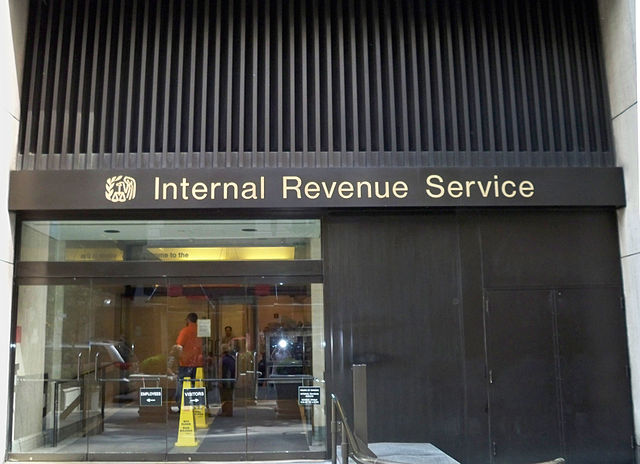No one likes tax season. It’s complicated, it’s stressful, and it’s getting worse.
Last year was already the “most challenging year taxpayers and tax professionals have ever experienced,” according to the Taxpayer Advocate Service, an independent part of the Internal Revenue Service. According to the agency’s annual report, taxpayers had trouble reaching the IRS, tax returns took months to process, almost a quarter of refunds didn’t go out until 2022, and collection notices were sent out even after the tax owed was paid.
The pandemic deserves some of the blame, but so do years of underfunding the IRS, antiquated computer systems and a dwindling workforce.
And with millions of returns from 2021 still waiting to be processed, 2022 may be worse. That prospect has prompted lawmakers and others to press the IRS to offer taxpayers relief, as it did in 2021, in the form of suspended penalties, delayed collections and extended tax deadlines.
As a tax expert, I believe taxpayers will face at least three main challenges this year. While the onus for solving these problems should be on the federal government – not the taxpayer – I do have a few suggestions for getting you through tax season 2022.
1. Backlogs and delays
The IRS started the 2022 tax season already significantly behind.
Over 15 million returns and 5 million pieces of taxpayer correspondence from 2021 sit untouched – including 6 million original 1040s. Amended 2021 returns are taking more than 20 weeks to process.
And it’s not just complicated returns that are getting delayed. Even simple individual returns are caught in the backlog.
As a result, expect a long wait before you receive this year’s refund.
This is a big problem for almost everyone. In 2020, over 75% of taxpayers received a refund, and the average refund for e-filed returns was $2,549.
Most people are eager to get their money. Often, refunds make a big difference to a household’s finances. One out of 4 recipients report that they will use their refunds to cover everyday expenses. One-third will try to catch up on debt. Others may use the sudden infusion of cash to make big purchases that they have put off all year, such as dental work or a down payment on a new car.
IRS delays mean businesses must wait longer for forgiveness of pandemic-related loans or credits for keeping their workers on the payroll. The same goes for workers who erroneously paid federal taxes on their unemployment insurance and can only be reimbursed at tax time.
2. Erroneous letters and actions from the IRS
That brings me to a second challenge.
IRS actions are often triggered by automated systems that generate notices and letters to taxpayers. For example, if the IRS system shows that a taxpayer owes the government money but doesn’t show payment by a given date, the automated system triggers a notice demanding immediate payment and assessing penalties. These IRS communications can leave taxpayers petrified.
Because of the antiquated computer system and dwindling personnel, you might very well receive a notice reprimanding you for a failure that you took care of months ago.
The IRS recently announced that it would suspend some automatic notices until its backlog clears, but others are required to go out within a certain time frame. It’s important to note that regardless of whether you receive a notice, you may still be on the hook for interest or penalties if the IRS thinks you owe money.
3. Hello? Anyone there?
But this challenge is compounded by the fact that taxpayers and preparers are finding it nearly impossible to get help from the IRS, whether in person, by telephone or via mail.
Face-to-face meetings have naturally become more limited due to COVID-19 precautions. IRS offices remain open but require appointments, while all Taxpayer Advocate Service offices are closed to in-person visits.
But don’t expect much more luck getting help over the phone. Last year, the IRS received a record 282 million phone calls, but answered only 11% of them. In other words, 250 million calls went unanswered.
And, as old-fashioned as it sounds, people still seek help from the IRS with snail mail. But the 2021 backlog is around 5 million letters, which suggests if you need help this year, mail may not be your best bet.
What you can do
And that brings me to what, if anything, you can do to steer through some of these challenges. Fortunately, there are a few best practices that can help.
File as early as you can. And if possible, file electronically – for example, by using the IRS’ free fillable forms, which allow you to prepare and file your own return without using any tax software.
Do your best to ensure your return is accurate the first time you file. Filing an amended return is sure to stretch out your wait.
It is also a good idea to keep copies of everything and not freak out if you get an IRS notice. There is at least some chance that the notice is wrong and the problem is already solved.
Calling the IRS seems like a nearly fruitless activity. If you must pick up the phone, you might have more luck calling in the morning when there’s less demand rather than in the afternoon. But expect a long wait even if you’re lucky enough to be among the 1 in 9 callers who get to talk to a human being.
For some taxpayers, such as those who are low-income or disabled, you could try reaching out to your local Volunteer Taxpayer Assistance Clinic, which may have more bandwidth to help. There is also the Taxpayers Assistance Center, which makes appointments and helps with more complicated matters.
Of course, the problem with all this advice is that it puts the onus on you, the individual taxpayer, to figure out how to sort through the mess created by years of severely underfunding the IRS. Annual funding for the agency has declined about 20% from 2010 levels, after adjusting for inflation, resulting in severe staffing shortages. I believe the only way to truly rectify the situation is for Congress to reverse the cuts it made and shore up the IRS with enough funding to do its job.
You shouldn’t have to be skilled or savvy in order to honestly pay your taxes.



 Office design isn’t keeping up with post-COVID work styles - here’s what workers really want
Office design isn’t keeping up with post-COVID work styles - here’s what workers really want  Every generation thinks they had it the toughest, but for Gen Z, they’re probably right
Every generation thinks they had it the toughest, but for Gen Z, they’re probably right  Debate over H-1B visas shines spotlight on US tech worker shortages
Debate over H-1B visas shines spotlight on US tech worker shortages  How to support someone who is grieving: five research-backed strategies
How to support someone who is grieving: five research-backed strategies  Britain has almost 1 million young people not in work or education – here’s what evidence shows can change that
Britain has almost 1 million young people not in work or education – here’s what evidence shows can change that  Yes, government influences wages – but not just in the way you might think
Yes, government influences wages – but not just in the way you might think  The American mass exodus to Canada amid Trump 2.0 has yet to materialize
The American mass exodus to Canada amid Trump 2.0 has yet to materialize  Why a ‘rip-off’ degree might be worth the money after all – research study
Why a ‘rip-off’ degree might be worth the money after all – research study  AI is driving down the price of knowledge – universities have to rethink what they offer
AI is driving down the price of knowledge – universities have to rethink what they offer  The Beauty Beneath the Expressway: A Journey from Self to Service
The Beauty Beneath the Expressway: A Journey from Self to Service  Why financial hardship is more likely if you’re disabled or sick
Why financial hardship is more likely if you’re disabled or sick  Canada’s local food system faces major roadblocks without urgent policy changes
Canada’s local food system faces major roadblocks without urgent policy changes  The ghost of Robodebt – Federal Court rules billions of dollars in welfare debts must be recalculated
The ghost of Robodebt – Federal Court rules billions of dollars in welfare debts must be recalculated 
































